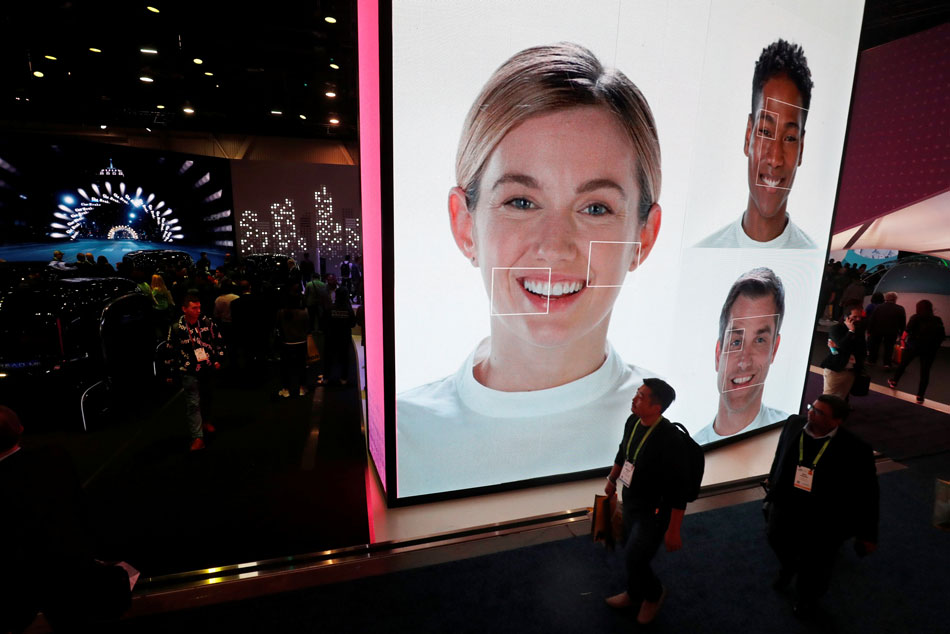IBM turns away from facial recognition business | ABS-CBN
ADVERTISEMENT

Welcome, Kapamilya! We use cookies to improve your browsing experience. Continuing to use this site means you agree to our use of cookies. Tell me more!
IBM turns away from facial recognition business
IBM turns away from facial recognition business
Agence France-Presse
Published Jun 09, 2020 09:40 AM PHT
SAN FRANCISCO - IBM said Monday it is no longer selling general purpose facial recognition software and is opposed to using such technology for racial profiling or mass surveillance.
SAN FRANCISCO - IBM said Monday it is no longer selling general purpose facial recognition software and is opposed to using such technology for racial profiling or mass surveillance.
The stance against facial recognition systems that could potentially be used to target minorities or violate human rights was included in a letter IBM's chief executive sent to members of US Congress.
The stance against facial recognition systems that could potentially be used to target minorities or violate human rights was included in a letter IBM's chief executive sent to members of US Congress.
"IBM no longer offers general purpose IBM facial recognition or analysis software," wrote Arvind Krishna.
"IBM no longer offers general purpose IBM facial recognition or analysis software," wrote Arvind Krishna.
"IBM firmly opposes and will not condone uses of any technology, including facial recognition technology offered by other vendors, for mass surveillance, racial profiling, violations of basic human rights and freedoms."
"IBM firmly opposes and will not condone uses of any technology, including facial recognition technology offered by other vendors, for mass surveillance, racial profiling, violations of basic human rights and freedoms."
ADVERTISEMENT
The century-old technology firm called for responsible national standards regarding how facial recognition systems should be used by police agencies.
The century-old technology firm called for responsible national standards regarding how facial recognition systems should be used by police agencies.
"Technology can increase transparency and help police protect communities but must not promote discrimination or racial injustice," Krishna said.
"Technology can increase transparency and help police protect communities but must not promote discrimination or racial injustice," Krishna said.
"Vendors and users of (artificial intelligence) systems have a shared responsibility to ensure that Al is tested for bias, particularity when used in law enforcement," he contended.
"Vendors and users of (artificial intelligence) systems have a shared responsibility to ensure that Al is tested for bias, particularity when used in law enforcement," he contended.
Technology such as body cameras and data analytics tools should be used to hold police officers accountable as well as for public safety, according to Krishna.
Technology such as body cameras and data analytics tools should be used to hold police officers accountable as well as for public safety, according to Krishna.
IBM offered to work with Congress to pursue "justice and racial equity" focused initially on police reform, as well as responsible use of technology and broadening skills.
IBM offered to work with Congress to pursue "justice and racial equity" focused initially on police reform, as well as responsible use of technology and broadening skills.
ADVERTISEMENT
The American Civil Liberties Union senior legislative counsel Neema Singh Guliani argued that facial recognition should not be integrated into body cameras worn by police officers.
The American Civil Liberties Union senior legislative counsel Neema Singh Guliani argued that facial recognition should not be integrated into body cameras worn by police officers.
"Body cameras are intended to be tools for accountability, not police surveillance," Guliani said in a statement released in regard to policing reform measures being proposed in Congress.
"Body cameras are intended to be tools for accountability, not police surveillance," Guliani said in a statement released in regard to policing reform measures being proposed in Congress.
"We need to invest in technologies that can help eliminate the digital divide, not technologies that create a surveillance infrastructure that exacerbates policing abuses and structural racism."
"We need to invest in technologies that can help eliminate the digital divide, not technologies that create a surveillance infrastructure that exacerbates policing abuses and structural racism."
© Agence France-Presse
ADVERTISEMENT
ADVERTISEMENT



